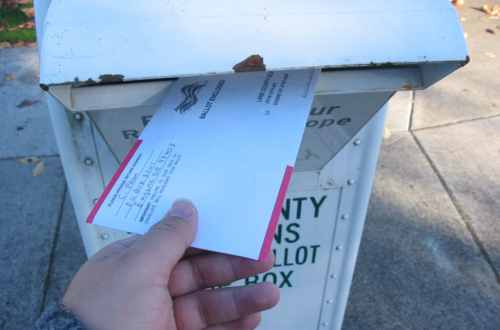As a global tourist destination, Disney is a staple of Florida’s economy. But, with the dispute between Governor Ron DeSantis and the company, much is unknown about what will come of the district where the company resides.
“For more than half a century, Disney has made an immeasurable impact on Florida and its economy, establishing Central Florida as a top global tourist destination and attracting tens of millions of visitors to the State each year,” begins the complaint filed by Disney against DeSantis and members of his cabinet.
The heavily publicized feud began with Disney’s disapproval over the Parental Rights in Education bill. Known as the Don’t Say Gay Bill by its opponents, it would give parents the right to approve and know the materials their children are learning about in the public school system.
DeSantis’ comments in regard to putting a prison next to Disney’s land led to a formal lawsuit about the oversight of Walt Disney World remaining a self-governing district.
The current arrangement, which has Reedy Creek $1 billion in debt, has been criticized for giving Disney more power over Floridian land than initially intended. However, acknowledging how much the theme parks have helped the Florida economy blossom over the last 52 years might make Disney’s self-governing arrangement worth the loss on Florida’s part.
Disney claims that DeSantis’ threats are politically driven as punishment for their opposition to the house bill. While Disney’s accusation remains unproven, it’s clear that however the lawsuit ends, it will undoubtedly set a new precedent for how far a state governor can interfere with a business’s operations.
Disney’s lawsuit against the Governor is based on the idea that DeSantis limits their freedom of expression within the Disney parks.
If true, Disney’s claim that DeSantis is limiting their first amendment rights would be ample reason to secure Disney’s special tax district rights within Reedy Creek Improvement District. To do this, Disney would need to prove that their first amendment rights have been maliciously violated. In addition to this claim, Disney argues that because of the Governor’s intervention within Reedy Creek, the parks may not be as successful as they were previously.
“[Disney is] upset because they’re having to live by the same rules as everybody else. They don’t want to pay the same taxes as everybody else, and they want to be able to control things without proper oversight.” DeSantis said while on an international press trip to Israel.
He claims that Disney’s special status is unfair because it can self-govern their taxes while charging park guests extra taxes on top of state taxes. He wants to hold Disney accountable for the debt they have accumulated while in charge of the Reedy Creek tax district and end “[t]he days of putting one company on a pedestal.”
Allison Patterson, an advertising senior at the University of Florida, said she thinks Disney is more likely to win the lawsuit because Florida relies heavily on tourism.
“Tourism is what allows our taxes to be so low; it’s the reason we don’t have state income tax,” she said. “On average, tourism saves Floridians an average 1,500 dollars a year. So based on that metric, I don’t think the governor would win.”
Mark E. Walker was going to be the judge overseeing the case but was disqualified because one of his family members owns shares of Disney stocks.
Judge Walker, who received his graduate degrees from the University of Florida and UF Levin College of Law, was nominated to be a district court judge by President Barack Obama in 2012.
The only thing left to do is watch who will win the battle for Florida: Disney or DeSantis?
Check out other recent articles from the Florida Political Review here.
Featured image: Cinderella’s Castle in 2008. Unmodified photo by Chris Harrison used under a Creative Commons license. (https://live.staticflickr.com/2082/2407640646_6d126d1799_b.jpg)





